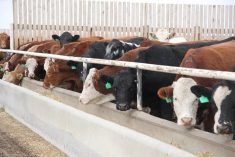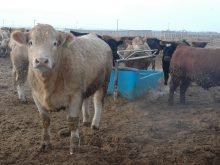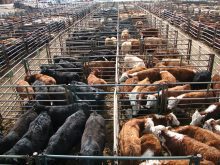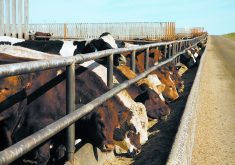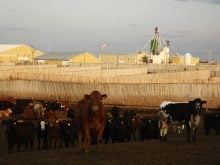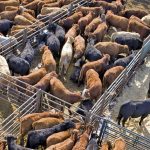This cattle market information is selected from the weekly report from Canfax, a division of the Canadian Cattle Association. More market information, analysis and statistics are available by becoming a Canfax subscriber by calling 403-275-5110 or at www.canfax.ca.
Fed prices steady
Alberta weighted average fed prices remained steady with the previous week. Fed steers and heifers averaged $255.78 per cwt. and $253.87 per cwt., respectively. Over the past six weeks, fed prices have followed seasonal trends, trading steady to weaker as summer heat sets in.
Read Also
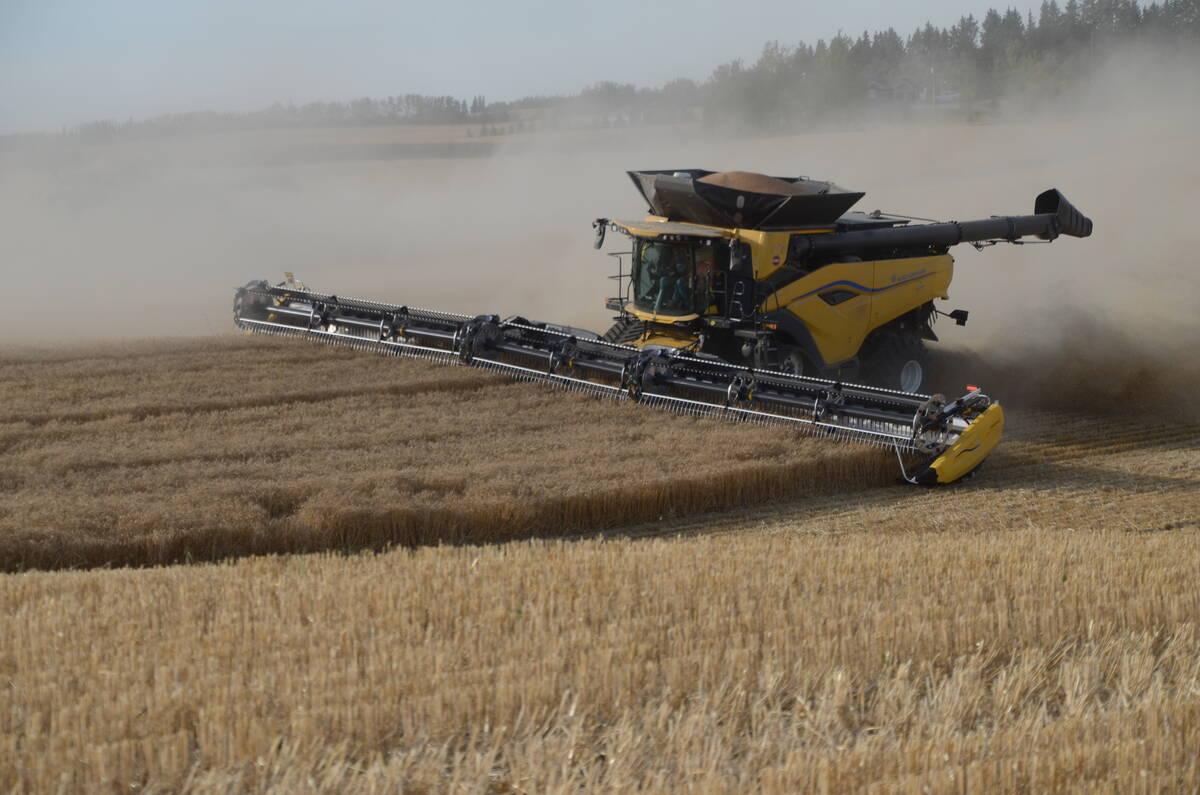
Grain farming on solid financial ground: Farm Credit Canada
There may be situations are farmers are stretched financially, but overall the industry is healthy, says FCC
However, fed prices have rallied by about $37 per cwt. since the start of the year. This is the second largest rally in the past decade.
Last week, dressed sales remained steady with the previous week, trading at $428-$429.00 per cwt. delivered. All three western Canadian packers participated, and one U.S. packer.
The Alberta-to-Nebraska cash-to-cash basis has weakened for the past five weeks, and last week was steady at -$14 per cwt., the lowest basis record for this period in the last decade.
For the week ending June 29, Canadian fed cattle and cow exports to the U.S. totalled 10,069 head, up 48 per cent from the previous week, the third largest week-over-week increase from a year ago.
In Ontario, the Cargill plant has resumed operations. Last week, dressed sales were at $415 per cwt. delivered, holding steady with prices seen when the strike first occurred.
In the United States, trade in Texas was at US$188 per cwt., $2 per cwt. lower than the previous week. Sales in Kansas were $187-$191 per cwt., ranging $3 per cwt. softer to $1 per cwt. stronger. On the fed cattle exchange, trade in Texas was also reported at $188 per cwt., with negotiated grid sales at $191 per cwt.
Live sales in Nebraska were at $198 per cwt., barely steady with the previous week’s weighted average price, while dressed sales were at $312-$315 per cwt., fully steady.
In June, carcasses grading either Prime or Choice accounted for 82.9 per cent of all youthful carcasses, the second highest on record for June going back to 2002.
Last week’s slaughter is estimated at 601,000 head, 1.3 per cent lower than three weeks ago. Lightweight 400-600 pound U.S. feeder steers have been trading largely sideways for the last 11 weeks, though the past six weeks have seen a slight bearish tone on 550 lb. steers. Heavier 700-900 lb. steers have found modest tailwinds and have moved three to five per cent higher since mid-April.
Bulls high, cows less so
Butcher bulls continue to be the bright spot for the non-fed market as prices established record highs last week, averaging $211.56 per cwt.
The butcher cow market has been under pressure for the past few weeks. Since early June, Alberta cow prices have dropped slightly more than $10 per cwt. In the next 30 days, the market will be working through the tightest supplies of the year. D3s traded for $183 and D3s for $169.03 per cwt. last week. Alberta cow prices are trading at a $9 per cwt. discount against the U.S. utility cow market.
U.S. packer interest has picked up recently. Western Canadian packers are not as active and have scaled back hours to match tighter numbers. For the holiday short week ending July 6 , western Canadian cow slaughter totalled slightly more than 4,100 head. For the start of July, this is the smallest cow slaughter since 2005.
Feeder numbers low
With seasonally lighter calf and feeder volumes, buyers are having a tough time putting loads together. There have been a few grass cattle at some auctions, but most cattle on offer are coming out of background lots. Grass cattle are trading at a $10-$12 per cwt. premium compared to background cattle.
Last week, new annual price highs were established for 600-700 lb. steers and 700-900 lb. heifers. With the Cargill Guelph plant operating, eastern feedlots have become more active on the feeder market.
Last week 950 lb. and heavier Alberta/Saskatchewan heifers coming off grass for September delivery traded from $317-$324 per cwt. Forward delivery prices have strengthened $5 per cwt. over the past month.
For the first half of this year, Canadian feeder cattle exports at 85,765 head are 6,500 more than last year but 46,000 head less than 2022.
Last week, on a light test of the market, cow-calf pairs averaged $4,450. Some older cow-calf pairs are going to the feedlot, but most are going back to ranches.
Cut-outs peak
In U.S. beef trade, cutouts appear to have peaked and are positioned to soften. Choice topped just above the US$330 per cwt. mark on July 8, with Select at $303 per cwt. Since then, Choice moved lower, to average $321.65 per cwt., while Select held its own.


